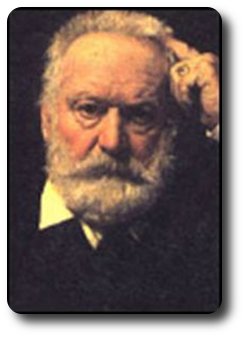Sunday 31 October, 3.45pm until 5.15pm, Upper Gulbenkian Gallery Keynote Controversies
 Liberalism was one of the big ideas of the Enlightenment. Why is it that liberal politics have failed to thrive during the past two decades? And what’s the future for liberalism in the context of a new UK government promising a more liberal agenda, and in the decade ahead more broadly? Most important of all, what does it mean to be a liberal today? In different contexts, the term can refer to polar opposites – champions of laissez-faire or supporters of a redistributive state – and it long served as a term of abuse on both left and right too, denoting a wishy-washy lack of conviction. But of course the word is derived from the Latin liber ‘free (man)’, and is still associated with an affirmation of free speech, movement, and independent thought, and a commitment to civil liberties. In this sense, a liberal society is free from narrow-minded prejudice and arbitrary or unnecessary constraints, and tolerant of divergent thinking. So shouldn’t we all be liberals?
Liberalism was one of the big ideas of the Enlightenment. Why is it that liberal politics have failed to thrive during the past two decades? And what’s the future for liberalism in the context of a new UK government promising a more liberal agenda, and in the decade ahead more broadly? Most important of all, what does it mean to be a liberal today? In different contexts, the term can refer to polar opposites – champions of laissez-faire or supporters of a redistributive state – and it long served as a term of abuse on both left and right too, denoting a wishy-washy lack of conviction. But of course the word is derived from the Latin liber ‘free (man)’, and is still associated with an affirmation of free speech, movement, and independent thought, and a commitment to civil liberties. In this sense, a liberal society is free from narrow-minded prejudice and arbitrary or unnecessary constraints, and tolerant of divergent thinking. So shouldn’t we all be liberals?
In fact, there is a great deal of confusion around the issue. Peculiarly, assaults on freedom often come in the guise of liberalism. Left-leaning ‘bleeding-heart liberals’, supporters of freedom for ethnic minorities and permissive attitudes to sexuality, have long been associated with ‘political correctness’, or attempts to silence hate-speech, as well as curbs on religious freedom in the name of secularism. In continental Europe, liberal parties commonly associated with right-ish economic liberalism nonetheless endorse everything from tight immigration controls to bans on the burqa. During the election campaign, Nick Clegg proposed internal movement orders reminiscent of Stalinism, while Vince Cable boasts of his regulatory powers over business. While obvious attacks on freedom, such as the emergence of a ‘surveillance society’ or the extension of detention without trial, do cause a stir, even ardent civil libertarians often fall silent when authoritarian measures are justified in terms of protecting children from abuse. And more informal aspects of illiberalism barely elicit a murmur of protest. When it comes to smoking and booze bans or ‘nudges’ to eat healthily and recycle, few liberals seem confident that people should be allowed to exercise their freedom, that ‘wrong’ choices should be tolerated.
While the Conservative-Liberal coalition promises to set us free at last from the constraints of the New Labour regime, the confusion around the meaning of freedom presents a challenge for those who wish to promote an older sense of what it means to be a liberal. But could the spirit of freedom, once let out of the box, inspire us all to stand up against petty authority and say ‘it’s a free country’? Victor Hugo proclaimed that, ‘No army can withstand the strength of an idea whose time has come’. Is liberal an idea whose time has come?
Listen to session audio:
 | Lisa Appignanesi president, English PEN; novelist, writer, and broadcaster; author, Mad, Bad and Sad; general editor, Profile Books Big Ideas series |
 | Professor Frank Furedi sociologist and social commentator; author, What's Happened to the University?, Power of Reading: from Socrates to Twitter, On Tolerance and Authority: a sociological history |
 | Mark Littlewood director general, Institute of Economic Affairs |
 | Nigel Warburton senior lecturer, philosophy, Open University; author, Free Speech: A Very Short Introduction; columnist, Prospect Magazine; interviewer, Philosophy Bites podcast |
| Chair: | |

|
Claire Fox
director, Academy of Ideas; panellist, BBC Radio 4's Moral Maze; author, I Find That Offensive |
What the Coalition has so far done to reclaim our civil liberties – and the work in progress
Alex Deane, Critical Reaction, 14 October 2010As the Tories prepare for their party conference, Amol Rajan argues that the Big Society would be lost without philosopher, pamphleteer and disgruntled ideologue Edmund Burke
Amol Rajan, Independent, 1 October 2010In civil liberties as in most else, there is a huge gulf between what Lib Dems say and what they do
Conor Gearty, Guardian, 10 July 2010Tony Blair trampled on liberty in Britain in a dozen different ways. He is an unworthy recipient of any award supposed to be connected with freedom.
Alex Deane, CentreRight Blog, 2 July 2010Whilst equality and liberty may not have as happy a marriage as Cameron and Clegg, they don’t need to fight each other to the death.
Francesca Klug, OurKingdom, 19 June 2010What is China Thinking? - Alan Hudson
"Intellectually stimulating - an answer to those who despair of the next generation."
Professor Stanley Feldman, retired doctor and academic